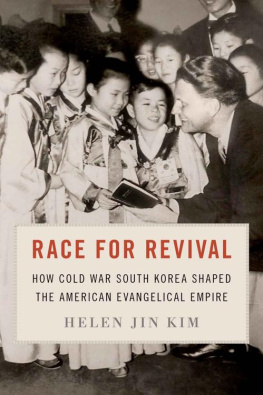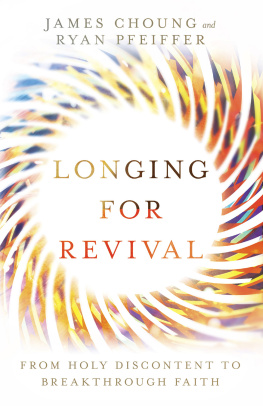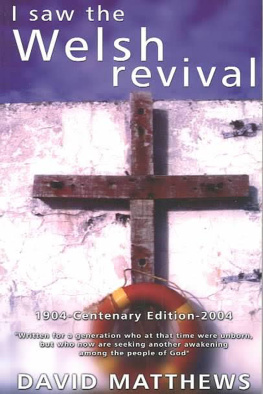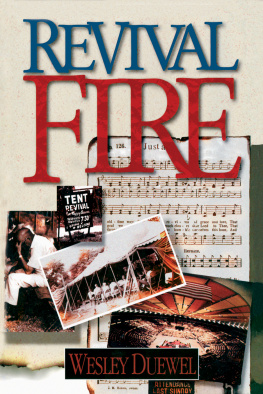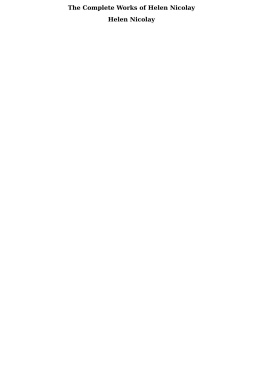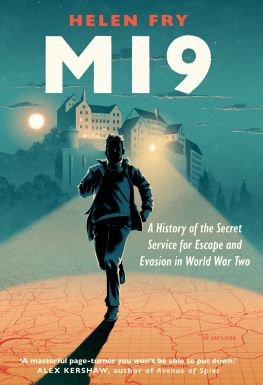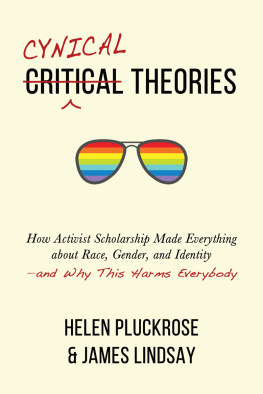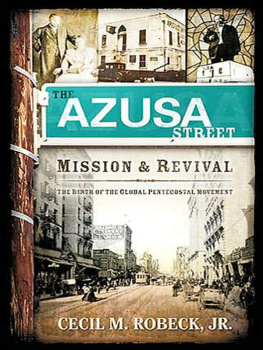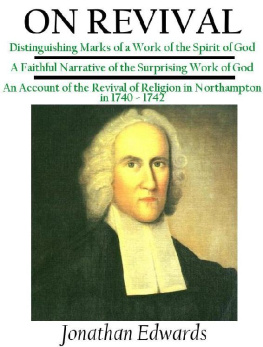Helen Jin Kim - Race for Revival
Here you can read online Helen Jin Kim - Race for Revival full text of the book (entire story) in english for free. Download pdf and epub, get meaning, cover and reviews about this ebook. year: 2022, publisher: Oxford University Press, genre: Politics. Description of the work, (preface) as well as reviews are available. Best literature library LitArk.com created for fans of good reading and offers a wide selection of genres:
Romance novel
Science fiction
Adventure
Detective
Science
History
Home and family
Prose
Art
Politics
Computer
Non-fiction
Religion
Business
Children
Humor
Choose a favorite category and find really read worthwhile books. Enjoy immersion in the world of imagination, feel the emotions of the characters or learn something new for yourself, make an fascinating discovery.
- Book:Race for Revival
- Author:
- Publisher:Oxford University Press
- Genre:
- Year:2022
- Rating:4 / 5
- Favourites:Add to favourites
- Your mark:
- 80
- 1
- 2
- 3
- 4
- 5
Race for Revival: summary, description and annotation
We offer to read an annotation, description, summary or preface (depends on what the author of the book "Race for Revival" wrote himself). If you haven't found the necessary information about the book — write in the comments, we will try to find it.
Race for Revival — read online for free the complete book (whole text) full work
Below is the text of the book, divided by pages. System saving the place of the last page read, allows you to conveniently read the book "Race for Revival" online for free, without having to search again every time where you left off. Put a bookmark, and you can go to the page where you finished reading at any time.
Font size:
Interval:
Bookmark:
HELEN JIN KIM


Oxford University Press is a department of the University of Oxford. It furthers the Universitys objective of excellence in research, scholarship, and education by publishing worldwide. Oxford is a registered trade mark of Oxford University Press in the UK and certain other countries.
Published in the United States of America by Oxford University Press 198 Madison Avenue, New York, NY 10016, United States of America.
Oxford University Press 2022
All rights reserved. No part of this publication may be reproduced, stored in a retrieval system, or transmitted, in any form or by any means, without the prior permission in writing of Oxford University Press, or as expressly permitted by law, by license, or under terms agreed with the appropriate reproduction rights organization. Inquiries concerning reproduction outside the scope of the above should be sent to the Rights Department, Oxford University Press, at the address above.
You must not circulate this work in any other form and you must impose this same condition on any acquirer.
Library of Congress Cataloging-in-Publication Data Names: Kim, Helen Jin, 1984 author.
Title: Race for revival : how Cold War South Korea shaped the American Evangelical empire /
Helen Jin Kim.
Description: New York, NY, United States of America : Oxford University Press, 2022. |
Includes bibliographical references and index.
Identifiers: LCCN 2021038645 (print) | LCCN 2021038646 (ebook) | ISBN 9780367569280 |
ISBN 9780190062422 (hardback) | ISBN 9780190062446 (epub) Subjects: LCSH: EvangelicalismKorea (South) | EvangelicalismUnited States. |
Graham, Billy, 1918-2018Influence.
Classification: LCC BR1640 .K47 2022 (print) | LCC BR1640 (ebook) | DDC 277.308/2dc23
LC record available at https://lccn.loc.gov/2021038645
LC ebook record available at https://lccn.loc.gov/2021038646
DOI: 10.1093/oso/9780190062422.001.0001
For mma, appa, and nni
This book began nearly two decades ago within the Korean diaspora, not with contemporary US politics and religion. In 2003, as a freshman, I became preoccupied with this books seed questions when I walked a picket line in Los Angeles as part of Asian American Issues, a service-learning course on Asian American history, politics, and community building. We protested a Koreatown supermarkets unjust wages. I was profoundly disturbed that the supermarket did not pay its primarily Latino workers a fair wage, but offered them Sunday worship services. Such injustices not only violated Christian principles of justice, love, and peace, but also the commitments of the 1970s and 1980s Asian American social movement.
As I sought alternative pasts, to imagine new futures, I considered the legacy of Chon Taeil (19481970), a twenty-two-year-old Korean factory worker, and a member of my knabjis (eldest uncle) church. Had minjung faithin the legacy of Chon and Choleft a more forceful transpacific legacy, would LA Koreatown have inherited a stronger faith tradition that cherished workers and social justice?
The faith of Chons and Chos era did not predominate in South Korea or Korean America. Into the 1980s and 1990s, a theological and political movement, more closely aligned with evangelicalism, burgeoned transnationally from South Korea to Korean America. Today, men of Korean descent lead flagship US evangelical institutions, from the National Association of Evangelicals to the Presbyterian Church of America.
How did evangelicalism become a predominant force in Korea and its diaspora in the United States? Was the US Christian Right responsible, given its association with evangelicalism? What, precisely, was the relationship between US politics, evangelicalism, and Koreans? Upon graduation, I further explored these questions with the Asian Pacific American Religion and Research Initiative, and during graduate studies, I found that a transpacific frame was necessary. Just as my questions took shape through an imagination beyond the nation-state, so too must the answers. In doing so, I found an archive remaining from a world I had not knowna testament to the power of research.
The minjung movement and the Asian American social movement were part of a coterminous transnational and global leftist tradition that aligned closely with communist and socialist ideals. But there was also a cadre of historical actors in the United States and South Korea who developed a transpacific tradition of evangelical piety and politics that competed with them. The politics of the Cold War in South Korea lifted them onto an unparalleled global stage. It also distanced those in the US diaspora from readily accessing alternative religiopolitical Korean narratives. To be sure, the binary between evangelical and liberationist approaches to modern Christianity is too simplistic. For it covers over gray areas where the two worlds have overlapped among both practitioners and scholars. But, as this book shows, Cold War Manichaean logic structured faith, race, and politics into binaries, pitting two worlds against each other.
Race for Revival uncovers a hidden past, which reverberates into our world today.
The US encounter with South Korea during the Cold War yielded an unprecedented change in evangelical piety and politics. Two unlike worldsCold War United States and South Koreabecame inseparable through an alliance, forged by the blood of Jesus, stained by the blood of war.
I lived around the edges of a story I could not access in booksso I wrote my own and discovered a new world in it. I entered that world with brilliant and kind scholars.
Paul Chang has been an invaluable conversation partner since I knocked on his office door as a college student at Stanford and then as a PhD student at Harvard. Marla Frederick, as a mentor at Harvard and a senior colleague at Emory, showed me how to work boldly and study people who are alive. Catherine Brekus journeyed closely through the writing, and she showed me how to run a classroom and navigate the guild. Jonathan Walton believed in me as a scholar and teacher from beginning to end, and provided crucial guidance throughout. In spring 2010, David Hempton opened up his course so I could write about transpacific evangelicalism. He is a steadfast mentor. Several nuggets of his wisdom remain: that the difficult parts of the past, while often unwelcomed, are still important to tell; that dissimilar literatures and worlds would come together through methey did! I am grateful for my Harvard writing group: Charrise Barron, Mycah Conner, Dale Gadsden, Kera Street, and especially Cori Tucker-Price, for her presence, counsel, and brilliance. Thanks to the North American Religion Colloquium, especially Brett Grainger and Elizabeth Jemison.
In spring 2013, through Princetons Exchange Scholar Program, I studied with Gary Okihiro, Albert Raboteau, and Judith Weisenfeld, which laid the foundation for
Research for this book was made possible through support from Harvard Universitys William R. Hutchison Presidential Fellowship, Charles Warren Center for Studies in American History, Center for American Political Studies, Korea Institute, and Graduate School of Arts and Sciences; the National Endowment for the Humanities; the Louisville Institute; the Candler School of Theology; and, the Forum for Theological Exploration, including their incredible staff: Elsie Barnhart, Kimberly Daniel-Brister, Darlene Hutto, Stephen Lewis, Patrick Reyes, and Matthew Williams. Sem Vermeersch and Yohan Yoo hosted me at Seoul National Universitys Kyujanggak Institute for Korean Studies in 2016.
Font size:
Interval:
Bookmark:
Similar books «Race for Revival»
Look at similar books to Race for Revival. We have selected literature similar in name and meaning in the hope of providing readers with more options to find new, interesting, not yet read works.
Discussion, reviews of the book Race for Revival and just readers' own opinions. Leave your comments, write what you think about the work, its meaning or the main characters. Specify what exactly you liked and what you didn't like, and why you think so.

